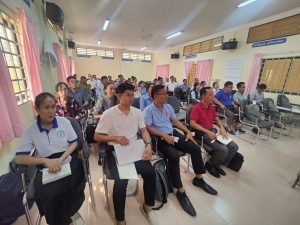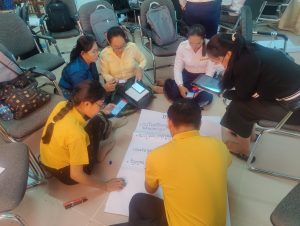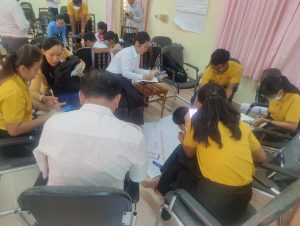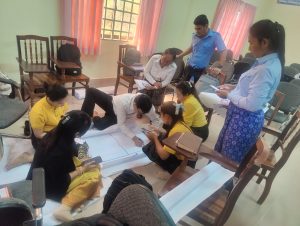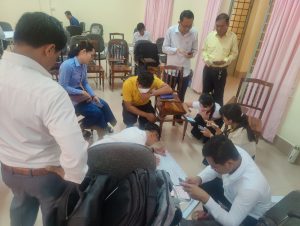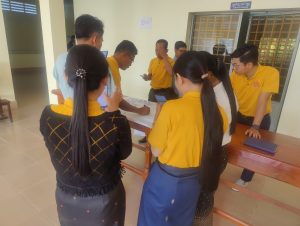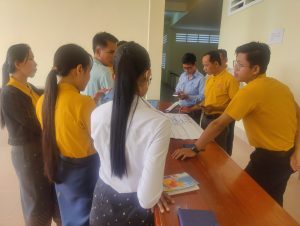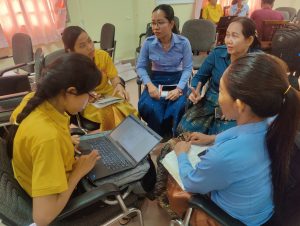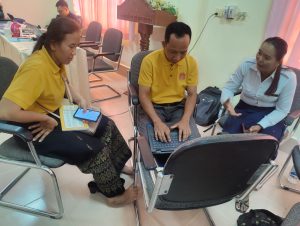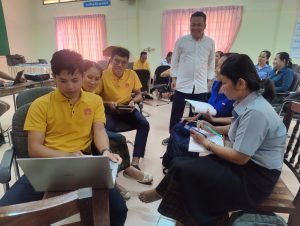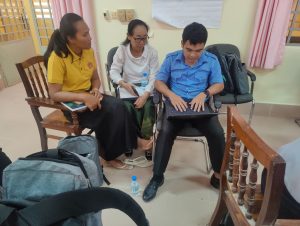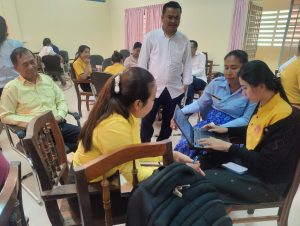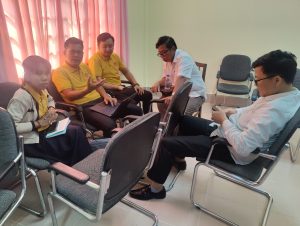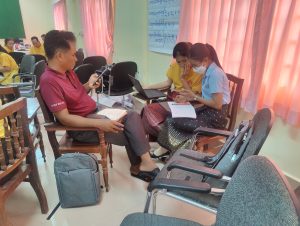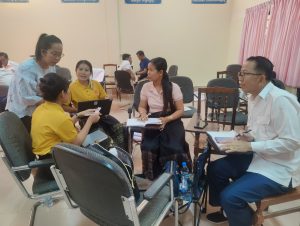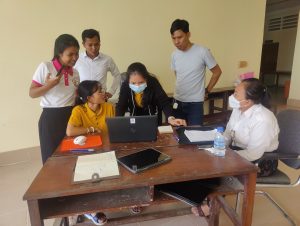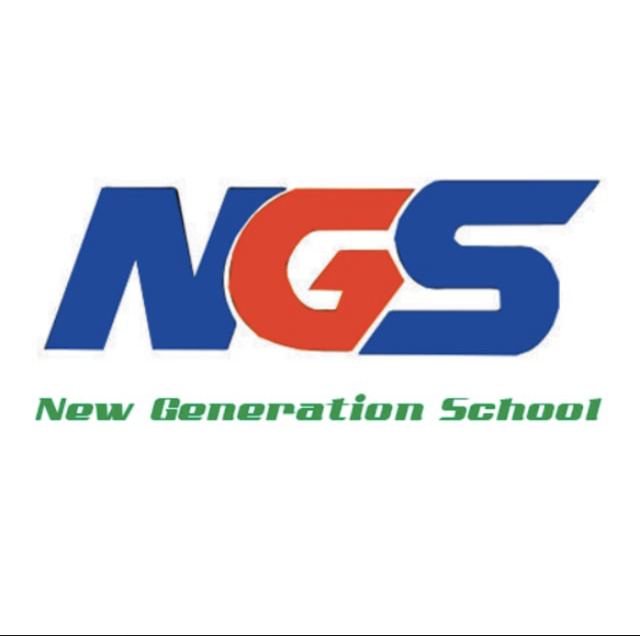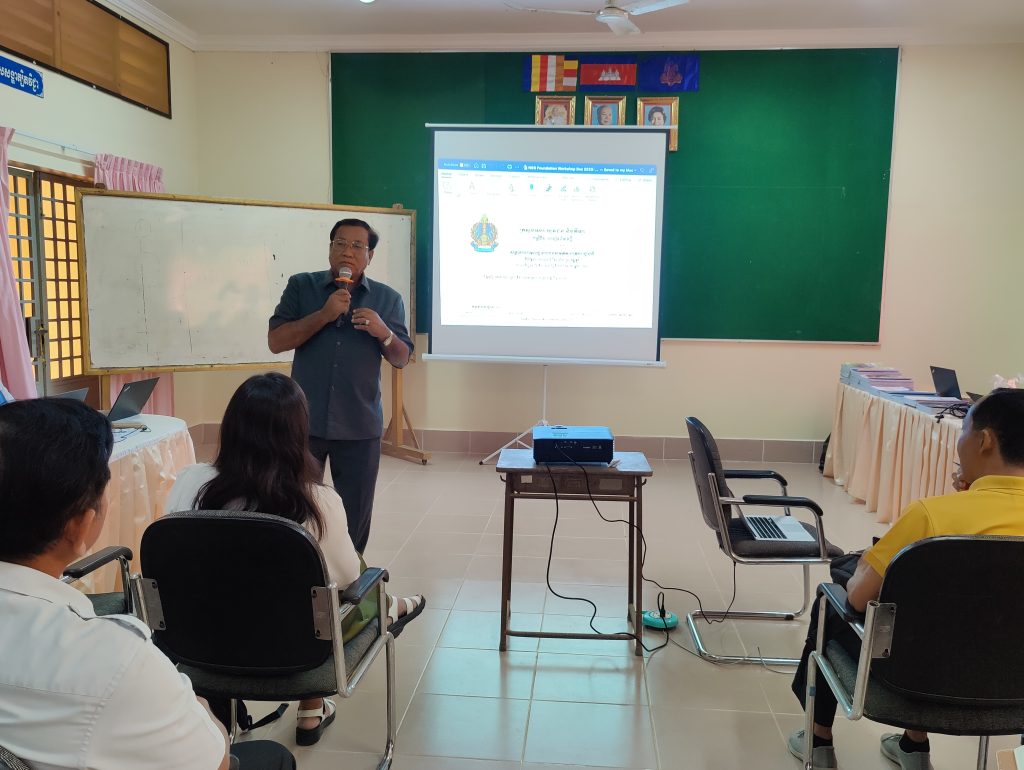Prey Veng, January 03, 2024
New Generation School Program organized a 10-day introductory workshop from 3 to January 12, 2024 for new teachers who will be working at New Generation School, Preah Ang Duong High School, Prey Veng Province and Arany Rainsy Secondary School, Siem Reap under the chairmanship of Mr. Him Sim Hourn, Vice President of KAPE, Mr. Ul Run, Senior National Advisor and Chief Executive Officer of the New Generation School Program and the coordination of the program officers.
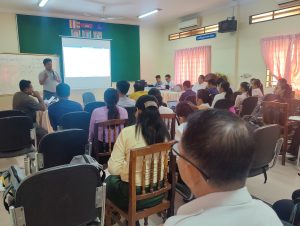
The participants of the workshop included the management of the new generation schools, mentors and about 60 teachers from both new generation schools. In this 10-day workshop, many important topics were raised such as:
- New Generation School Orientation: Video presentations about New Generation Schools Key elements of the New Generation School Program: 21st Century Libraries, the use of ICT in classroom teaching, and student empowerment … .
- New Generation School Policies and Guidelines: Core Principles of New Generation Schools, New Generation School Criteria and Other Measures (NGS Matric) New Generation School Operational Guidelines.
- Teacher Development Framework: Development of Teacher Career Path Planning, why we need to plan for teacher career development, planning and implementation, face-to-face counseling, observation, teaching and teaching. As a community group, vocational teachers, out-of-school study tours, Opportunity to develop additional teaching skills that reflect the role of mentors in the new generation school teacher support systems, the use of Observic software to provide digital teacher counseling.
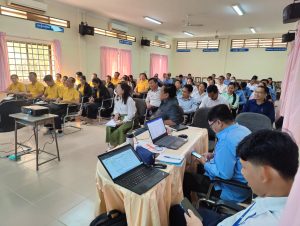
- 21st Century Education: The Transition in Education: The Transition from the 20th Century to the 21st Century Taylorism: How New Generation School Programs Respond to 21st Century Learning 21st Century Skills (4Cs, IMT, FLIPS) 21st Century Education Challenges, Understanding the Reform of the Teaching and Learning Process in Cambodia, and New Ways to Improve New Generation School Teaching Practices.
- Active learning and return classes: Teaching techniques, Think pair share, Teaching techniques, Jigsaw Teaching techniques, Gallery walks….
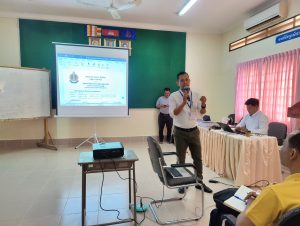
Constructivist Learning:
- Lesson 1: What is constructive learning ?: Why is constructive learning effective? Linking constructive learning and other theories, definitions, constructive studies, key principles of constructive learning.
- Lesson 2: Practicing constructive learning in the classroom: connecting constructive learning with Bloom’s Taxonomy, creating rules and constructive learning, creating two contradictory rules, useful teaching strategies for learning Construction.
- Lesson 3: Creating an Institutional Context to Promote Constructive Learning: Examples of Processes and Products in Constructive Learning, Constructive Learning, and Technology.
- Lesson 4: Constructive Student Assessment: Contradictory evaluation of traditional and constructive learning Assessment strategies in constructive learning environments Practical examples of assessment methods used to evaluate constructive learning.
- Cooperative Learning: What is Cooperative Learning? Objectives and elements of collaborative learning Various ways to use collaborative learning in the classroom Organizing classes to help collaborative learning Practice collaborative learning in the classroom Video surveys of practice Teach in a collaborative way.
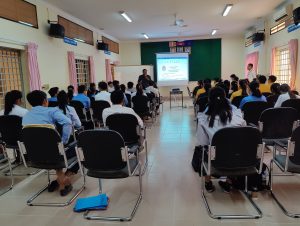
- Project studies: Theories related to project studies Why are project studies so popular in 21st century educational contexts? Features of project study, comparison of project study and traditional study, relationship between constructive study and project study, practical application, project study, project study overview, key questions, practice Project implementation action plan Presentation of project studies, resource management for project studies exhibitions, thematic project themes, project-based project evaluation, evaluation of the contrast between traditional and constructive studies, strategic assessment in a formal learning environment. Project practical examples of constructions of constructive learning.
- Classroom Student Assessment: Basic Principles and Regulations of Assessment (Types of Assessments, Stage and Total Assessment), Interpretation of Test Scores (Assessment, Classification and Criteria Assessment), Characteristics of Scores and Good exam.
- Practical strategies for setting up and creating tests: writing Bloom Taxonomy teaching objectives, creating test plan schedules, writing biased questions, writing biased questions and scoring, creating question banks, creating questionnaires and setting up question banks.
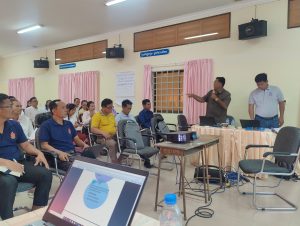
- Differentiated Instruction: The Dangers of Student Labeling, Multiple Intelligences, Student Groups, and Factors Avoid Classroom Management Skills, What is classroom management? Maintaining momentum while teaching classroom discipline.
- Use of ICT in teaching: Introduction and distribution of laptops to teachers, understanding of information and communication technology (ICT) Presentation on the use of software (Observic and X-reading) Presentation on the use of digital assessments, Email creation with Google Accounts Presentation on the development of the Quizizz, Canva, Kahoot, assessment tool Presentation and implementation of the evaluation tool ( Google Form) Discussion on the use of digital assessments, presentations, e-classroom coverage through Google Classroom.
- Life Skills Education: Soft Skills and Hard Skills Evaluation, Life Skills Rules and Patterns, Guidelines for Basic Life Skills Education, Various Methods (IBEC and 6-Step Patterns) for Learning Life Skills IBEC Life Skills Curriculum Basics.
- New Generation School Accreditation Assessment: Presentation New Generation School Policies, New Generation School Program Operational Principles, New Generation School Accreditation Assessment Framework.
